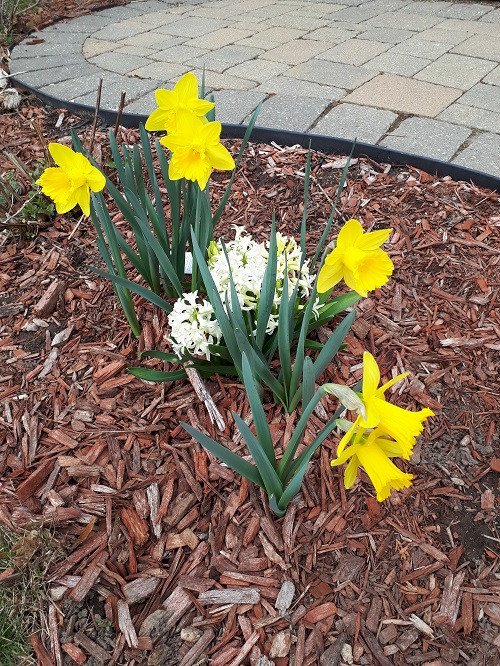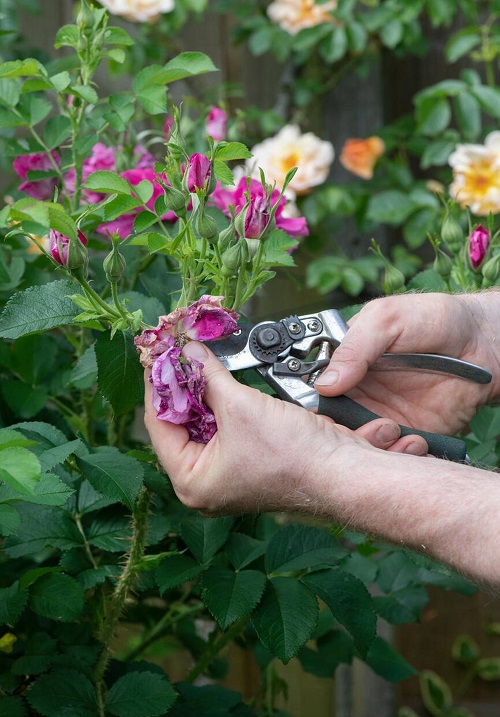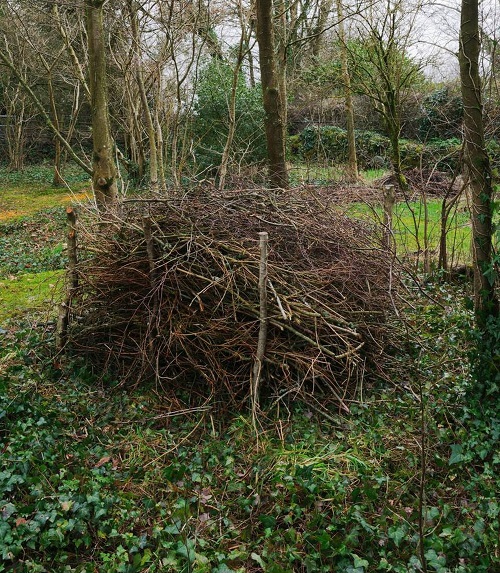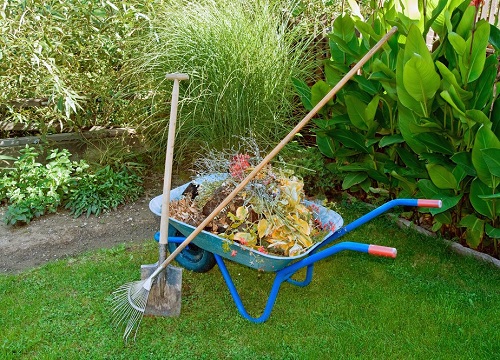Autumn leaves making a mess of your backyard? Here’s how to Clean Your Fall Garden without Disturbing Beneficial Insects!
Your garden may seem ripe for a clean-up in fall, with piles of dried-up foliage all around. But stop and think of the many helpful bugs and creatures that shelter in autumn’s debris to face winter! If you do, we show you how to clean your fall garden without disturbing these beneficial insects.
Bees, butterflies, and helpful predators like ladybugs and ground beetles find safe spaces in fall debris to overwinter. Fallen foliage is also nature’s way of keeping soil healthy, storing away carbon, and keeping your garden alive!
So, if you can leave your garden intact with autumn residue, that’s the best thing to do. But if you need to clear up to prevent fire risk or deter snakes and poisonous critters from inhabiting where people and pets frequent, here’s what you do.
Clean Your Fall Garden Without Disturbing Beneficial Insects
1. Leave Some Plant Debris
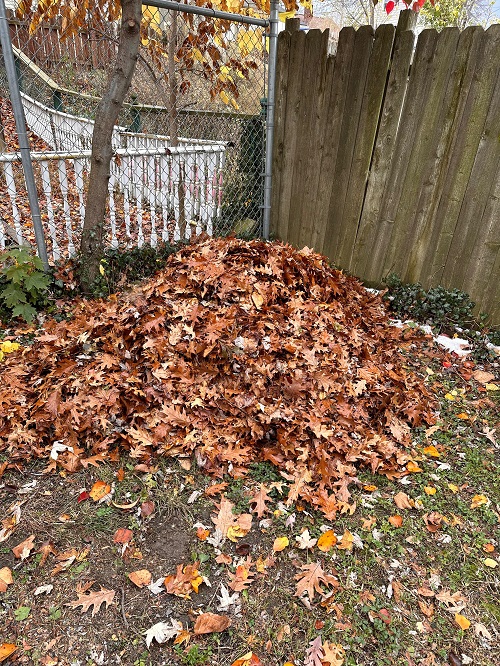
While you may be tempted to remove all dead plants and debris from the garden, we recommend leaving mounds in different spots that you won’t frequent to shelter insects undisturbed.
Hollow plant stems, fallen leaves, broken twigs and branches, and dried grasses offer hiding spots for tiny creatures to hibernate and save their lives.
2. Avoid Raking Too Much
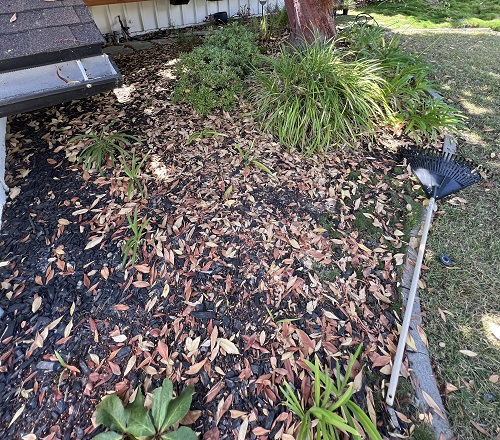
Raking helps to keep your garden neat, but too much raking can disturb beneficial bugs hiding in the soil or under the leaves. Many useful insects, such as beetles and spiders, find refuge in leaf litter. Instead of raking the entire garden, only focus on pathways or areas where you need clear space.
Spare the leaves on your flower beds or around trees. The layer will protect the soil and provide a habitat for insects.
3. Leave it to Mulch
Mulch is an effective insulator for plants and microorganisms living beneath the soil. Leave it be during autumn to protect plants and insects from extreme weather changes, frost, winds, and fluctuations. It also helps preserve moisture deep in the soil.
Add more mulch to areas that need extra insulation to provide additional warmth. And if you get abundant pine needles in your garden, here’s how to use them for mulching.
4. Don’t Cut Back All Perennials
Removing or cutting back dead or dying perennials helps keep the garden tidy, but many insects, like bees, nest inside hollow plant stems during winter. Instead of cutting down to the ground, leave a few standing for insects to use as shelter.
If you need to cut plants back, wait until spring to allow insects to emerge first.
5. Pull Back on Pesticides
Pesticides don’t differentiate between pesky pests and useful insects. They will harm the good bugs as much as the bad ones! As insects prepare to overwinter, avoid using chemicals that could harm your ladybugs, parasitic wasps, and lacewings that actually help keep harmful pests under control.
Instead of pesticides, try natural pest control methods, such as hand-picking the tiny invaders, using frog houses, or building traps.
6. Create a Safe Overwintering Area
If you have ample space, create a designated overwintering area for insects and creatures by placing rocks, logs, and twigs in a quiet spot in the garden. These materials provide shelter and hiding spots for insects during the cold months and add a natural look to your garden.
Stack logs, twigs, and bamboo to create a simple structure where insects can hide.
7. Free the Weed
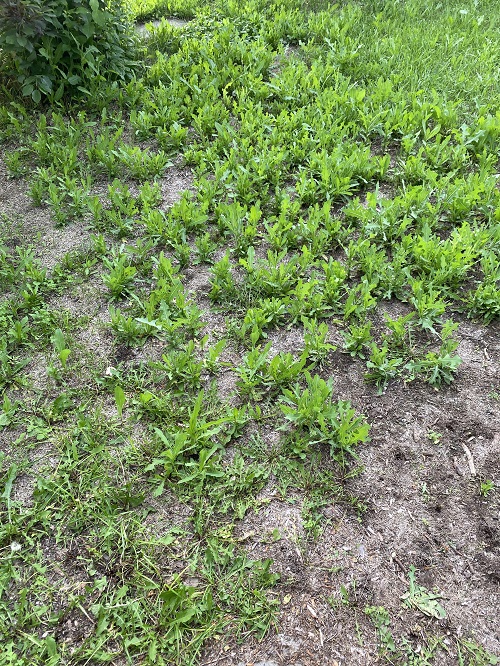
While pulling out aggressive or invasive weeds is a good idea, you can let the seasonal and useful ones grow wild. Plants like dandelions and clover provide food and shelter for insects in the fall. Don’t let them take over, but go easy on weeding them out!
Create a small “wild” patch in your garden where weeds, wildflowers, and native herbs can thrive and grow freely.
8. Wait until Spring for “Real” Clean-up
Insects like butterflies, bees, and other pollinators spend winter in various stages of their life cycles—some as larvae, others as eggs, and even as adults. When you delay major garden cleanup until spring, you allow them to emerge when the weather warms up.
Do a light cleanup in the fall, but save tasks like pruning and heavy raking for spring.
Sheltering beneficial bugs and insects is crucial for a healthy garden. If you disturb their habitats during the fall, you reduce their chances of survival through the winter, impacting a healthy ecosystem. While at it, explore these additional ways to use autumn leaves.


